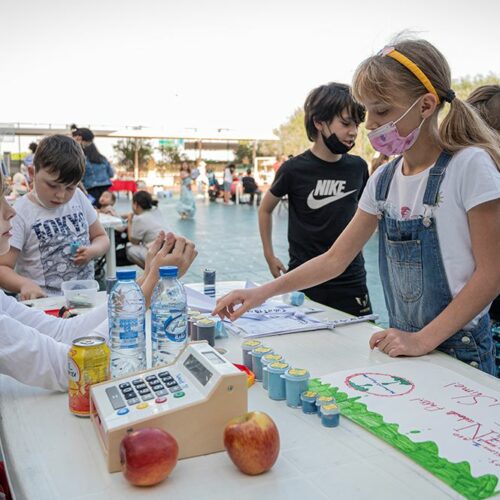Five tips to make the best start of the new school year
Sinéad Craddock, Head of Counselling Services – Whole School at GEMS World Academy, shares essential tips for parents and children to foster mental health, create routines, and achieve academic success.

The start of a school year is an exciting time, but it can also bring about a mix of emotions and challenges. To support parents and children in making this transition as smooth as possible, here are some her top tips for nurturing mental health and wellbeing during this crucial period.
Embrace Routine
Stability and Security – Establishing a consistent daily routine offers a sense of stability and security for both you and your children. Knowing what to expect each day, and having these expectations met, can help reduce stress and anxiety.
Balancing Act – A well-balanced routine should include time for schoolwork, leisure activities, and relaxation. Having a balanced schedule helps students manage their academic responsibilities while also allowing them to unwind and enjoy their interests.
Bedtime Routine – Ensuring a bedtime routine is in place for students of all ages is imperative. Having a regular sleep schedule, i.e. sleeping and waking at the same time each day, promotes good sleep hygiene, which is vital for academic performance and mental wellbeing.
Communicate Openly
Emotional Support – Open and honest communication creates an emotional outlet for students to express their thoughts, feelings, and concerns. With open communication, they feel they can equally share their joys and their challenges.
Active Listening – Active listening on the part of parents is essential. It involves not only hearing what children are saying but also understanding their perspective and empathising with their experiences. It fosters a sense of being heard and understood. Ask your child, “Do you want a solution from me, or do you simply want a listening ear?” Sometimes, they just want to be heard, and just talking about their thoughts and worries can be all they need. It can also foster a stronger bond between parents and children.
Set Realistic Goals
Balancing Aspiration and Realism – While academic excellence is a valid goal, it’s equally important to set realistic expectations that prioritise overall wellbeing. Recognise that success comes in various forms and that perfection is not always attainable. Reinforce their successes with them at every opportunity.
Individual Progress – Encourage your child to focus on their individual progress. Each student has their own unique strengths and weaknesses. Emphasising personal growth helps reduce the pressure to measure up to external standards, such as peers and even siblings. Emphasise that all children are individuals with different strengths and weaknesses.
Practice Self-Care
Holistic Wellbeing – Prioritising self-care is essential for holistic wellbeing. It includes getting enough sleep, maintaining a balanced diet, partaking in physical activity, and pursuing activities that bring joy.
Mental Health – Self-care isn’t solely about physical health; it also pertains to mental health. Encourage mindfulness, stress management techniques, and engaging in hobbies that promote relaxation. Promote positive mental health in your child by talking about feelings together.
Seek Support
Use Available Resources – Remind students and parents that the school community is a
valuable resource. The school counselling team is there to offer guidance and a listening ear. Seeking support when needed is a sign of strength, not weakness. It’s essential to know that help is readily available within the school environment for any concerns or challenges that arise.
By implementing these tips, you and your child can navigate the challenges of the new school year with greater confidence and increased wellbeing. Building a supportive and open environment at home and within the school community is key to nurturing mental health and success during this crucial period for our children.












Comments